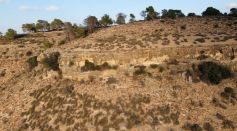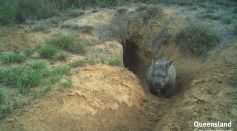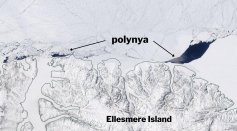ENVIRONMENT & CLIMATE

What is Solar Paint and Can it Revolutionize Green Architecture?
Human Debris: How Old Tires Endanger and Trap Hermit Crabs as it Pollutes the Waters
Tusk Evolution: Researchers Trace First Mammal Relative
Can Humans Finally Talk to Whales? Scientists Use AI to Try Decoding Whale Songs
Paleo-Fires Common in Antarctica 75 Million Years Ago, Burned Parts of Forests Home to Angiosperms

‘Tipping Points in the Climate System’ Better Understood, Predicted Through Data from Ancient Past
Continuous Plankton Recorder: This Device Helps Scientists Understand the Ocean Better, Has Great Global Impact

Massive Asteroids, Comets Once Bombarded Earth That Altered Oxygen Levels in the Atmosphere

New Partnership To Protect Critically Endangered Northern Hairy-nosed Wombat
Tiny Unicellular Protist Can Help Predict Climate Change and Buffer Global Warming, Study Says

Aquatic Fungus Now a Threat to Terrestrial Frog Survival; Will they be the Next Amphibians to be Wiped Off the Map?

Giant Holes Formation in the Arctic Ice Sheet Shows Last Ice Area Is Less Resilient To Warming

India Experiences Most Devastating Effects From Heat-Induced by Climate Change; Country 15 Percent More Vulnerable Than 1990

Newly Found Sponge-Like Structures Could Push Animal Evolution Back by Several Hundred Million Years
Most Popular

10 Weird Things the Human Body Does—and the Science Behind These Biological Mysteries

Why Mega Typhoons Keep Getting Stronger: The Science Behind Typhoon Formation and Extreme Weather

Top Space Technology Trends and Aerospace Innovations Revolutionizing the World Today

How Plate Tectonics Trigger Earth's Most Dangerous Disasters Through Powerful Seismic Hazards




